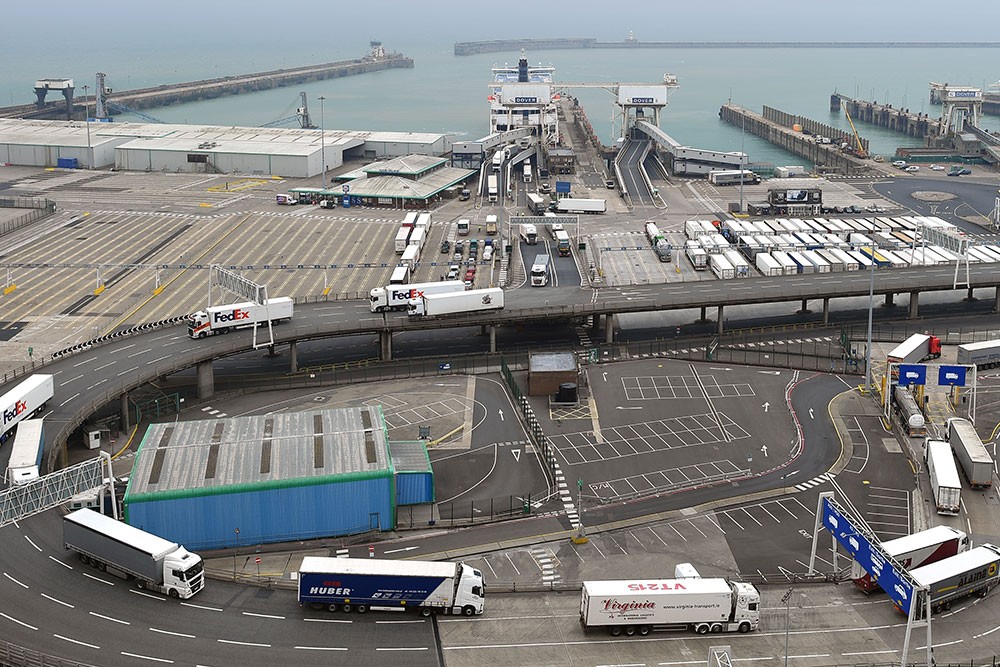
It dominated our lives between 2016 and 2019, but Brexit all but disappeared from the headlines as we dealt with the Covid-19 pandemic. Now government rhetoric is ramping up again, and simultaneously practitioners are finding that clients are again beginning to show concern over the impact of the UK’s departure from the EU.
‘Now we are seeing a return to some semblance of normality, clients in both the UK and the EU have become more aware that Brexit hasn’t gone away,’ says Maria McConnell, VAT director at accountancy firm French Duncan. ‘But it is still not clear yet what will happen and what mechanisms we will face.’
The end of the transition period (during which EU single market and customs union rules still apply to the UK) is looming. It terminates on 31 December, but what 2021 will hold for UK businesses is still not clear. Talks to achieve a UK-EU trade deal before the end of the year have made little progress. A no-deal scenario (leaving the UK to trade with the EU on World Trade Organization terms), a partial trade deal (with agreement on certain issues left to a later date) and a full trade deal are all still on the table, although the last seems impossible given the short time remaining.
‘As it’s becoming more likely that we are not going to get an extension to the transition period and that there will be a firm break at the end of the year, clients, particularly those that deal in goods, have to put the wheels in motion and start planning,’ McConnell says.
Ensure that you have freight agents in place from day one. There is a shortage of customs declarations staff in the industry, so don’t leave it until the last minute and face a wait until your goods get declared.
Exports and duties
McConnell says her clients are looking for more information on crossborder trading with the EU and are dealing with issues around importing and exporting globally for the first time. They have particular worries about their supply chain becoming more expensive.
‘It is all new to them, and they are looking for advice on how to mitigate the financial impact of importing and exporting to and from the EU and understand HMRC guidance on customs, which can be quite lengthy and technical,’ McConnell explains. ‘Even we can get mired in it, and I understand how that can put clients off.’
From UK and EU clients she has also noted more queries about whether they need fiscal representatives in the EU or UK respectively for VAT purposes.
Andrew Thurston, customs duty consultant at accountancy firm MHA MacIntyre Hudson, has also fielded more enquiries about VAT registration when exporting to the EU, as well as other cost-related duty issues. ‘Our clients want to talk about UK borders, moving goods to Northern Ireland, commodity codes and what the UK tariffs are going to be compared with the EU,’ he says.
McConnell says she begins her advice to clients by looking at the nature of their business, what importing and exporting activity they have been doing to date, and trying to keep that as ‘normal as possible’ in the new future.
Accounting postponed
It could mean, in most cases, taking advantage of new, postponed accounting for VAT rules from 1 January next year on all imports of goods. UK VAT-registered businesses will account for the VAT on goods imported into the UK on their VAT returns, and both pay and recover import VAT on the same VAT return.
‘There are also provisions being introduced where they can do something similar for customs duties,’ McConnell adds. ‘They would pay an estimate based on what they have actually imported in a particular month and then do a catch-up payment later.
‘Alternatively, we might advise that they apply for suspension regimes, such as the use of custom warehousing. It is giving them options to ease the cashflow burden.’
Shaz Nawaz, director at AA Accountants, says it isn’t just importers and exporters who should be concerned about cash. ‘Clients pre-pandemic were anxious about their margins and the impact of higher prices for goods on their cashflow,’ he says. ‘I have no doubt these same concerns and questions will return as we head towards the deadline. Our advice will likely be the same around looking after cash through having a six-month buffer and potentially increasing prices.’
Prepare for the worst
McConnell says SMEs should prepare for the worst so that if it comes it won’t be such a shock to the system. ‘If we get new trade deals then great, but we don’t know what they are yet. Preparing is all we can do.’
Thurston agrees. ‘The picture is slowly getting clearer. But we can’t say exactly what will happen until October, which is set to be the cut-off point for getting a trade deal through by the end of the year. We are focusing on the parts that we know are going to be in place.’
One element already agreed is the so-called soft landing, where UK importers don’t have to produce customs declarations or pay any tariffs between 1 January and 30 June 2021.
‘We are talking to our clients about how this will work in practice,’ Thurston says. ‘We are also helping clients via our customs training scheme. It gives staff sufficient knowledge to keep their company compliant with declarations.
‘One key piece of advice is to ensure that you have freight agents in place from day one. There is a shortage of customs declarations staff in the industry, so don’t leave it until the last minute and face a wait until your goods get declared.’


